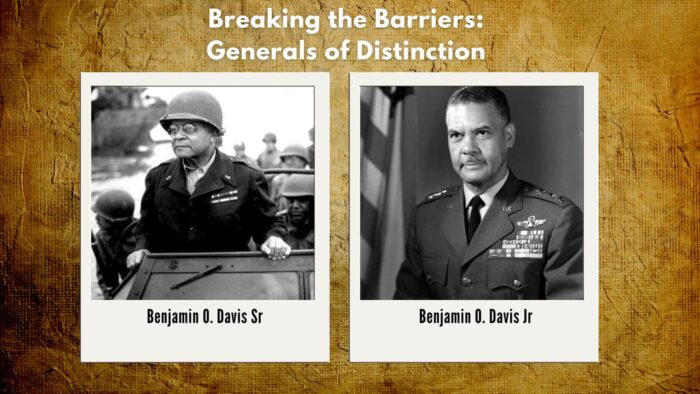Invisible Generals: The Untold Legacy of America’s First Black Generals
In episode 134 of the Coming Home Well podcast, we had the privilege of speaking with Doug Melville, the author of Invisible Generals, a powerful exploration of the lives and legacies of the first Black general officers in the United States military. This episode isn’t just a retelling of military history—it’s a deeply personal and emotional journey through the sacrifices and struggles faced by Doug’s family, particularly his great uncle, Benjamin O. Davis Jr., and his grandfather, Benjamin O. Davis Sr.
Uncovering a Family’s Forgotten Legacy
Doug Melville’s journey in writing Invisible Generals began with a startling realization: his family’s profound contributions to military history had often been overlooked or erased. As he shares in our conversation, his quest to unearth the truth became more than just a research project—it was a mission to ensure that the courage, perseverance, and leadership of his ancestors received the recognition they deserved.
His grandfather, Benjamin O. Davis Sr., made history in 1940 as the first Black general in the U.S. Army, fighting against racial barriers that often relegated African American soldiers to lesser roles. Despite these obstacles, Davis Sr. dedicated his life to advocating for Black service members, pushing for integration long before it became official military policy.
Benjamin O. Davis Jr. and the Tuskegee Airmen
One of the most striking moments in the episode is Doug’s recounting of the Tuskegee Airmen, the groundbreaking group of Black fighter pilots led by his great uncle, Benjamin O. Davis Jr. Facing relentless racism and doubts about their abilities, Davis Jr. and his men shattered expectations, proving their skill and bravery in the skies during World War II. Under his leadership, the 332nd Fighter Group achieved an unparalleled combat record, never losing a single escorted bomber to enemy fire.
Despite his achievements, Davis Jr. had to endure systemic discrimination even after the war. Doug shares how his great uncle was repeatedly denied promotions and opportunities that his white counterparts received. However, his perseverance ultimately paid off—he played a critical role in desegregating the Air Force and was later promoted to four-star general. Tragically, this long-overdue recognition came too late for him to benefit from the financial compensation associated with the rank.
A Story That Speaks to America’s Past and Present
Beyond military accomplishments, Doug Melville’s Invisible Generals highlights a broader narrative—one that intertwines with civil rights, racial justice, and the American Dream. Through personal anecdotes and historical insights, Doug illustrates how his family’s sacrifices paved the way for future generations of Black service members.
As we reflect on their legacy, Doug encourages listeners to explore their own family histories. His story serves as a poignant reminder that personal narratives are often woven into larger historical movements. Understanding where we come from allows us to better appreciate the struggles and triumphs that have shaped our present.
Why This Story Matters Today
The story of Benjamin O. Davis Sr. and Jr. isn’t just about military history—it’s about resilience, leadership, and the fight for equality. Their journeys remind us that true progress often comes at great personal cost. By learning about and honoring their contributions, we help ensure that history does not forget the pioneers who paved the way for a more just and inclusive future.
If you’re passionate about military history, civil rights, or stories of perseverance, we highly recommend listening to this episode and picking up a copy of Invisible Generals. It’s more than a book—it’s a tribute to the resilience of those who fought for recognition and justice in America.


